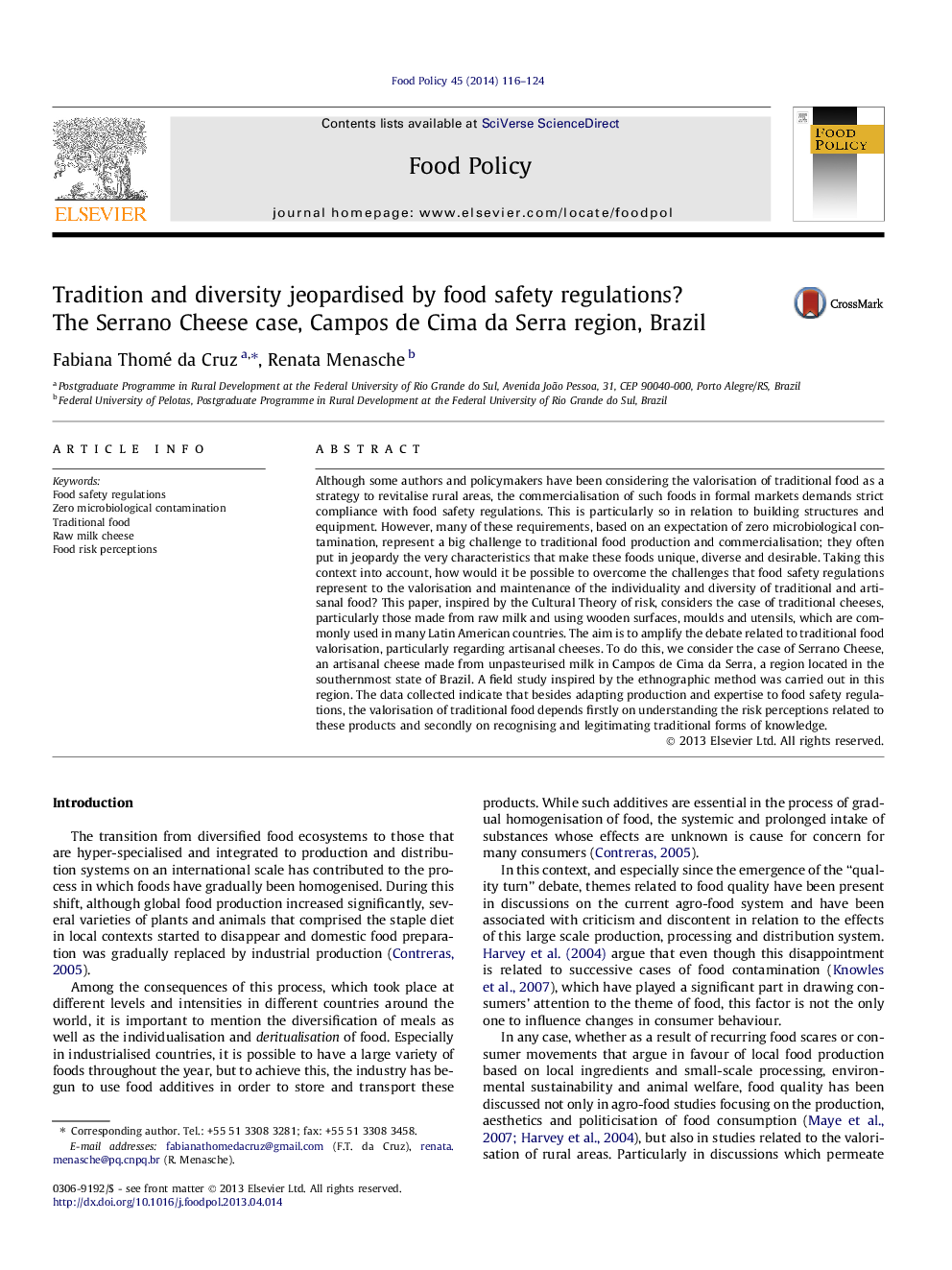| Article ID | Journal | Published Year | Pages | File Type |
|---|---|---|---|---|
| 5070482 | Food Policy | 2014 | 9 Pages |
Abstract
Although some authors and policymakers have been considering the valorisation of traditional food as a strategy to revitalise rural areas, the commercialisation of such foods in formal markets demands strict compliance with food safety regulations. This is particularly so in relation to building structures and equipment. However, many of these requirements, based on an expectation of zero microbiological contamination, represent a big challenge to traditional food production and commercialisation; they often put in jeopardy the very characteristics that make these foods unique, diverse and desirable. Taking this context into account, how would it be possible to overcome the challenges that food safety regulations represent to the valorisation and maintenance of the individuality and diversity of traditional and artisanal food? This paper, inspired by the Cultural Theory of risk, considers the case of traditional cheeses, particularly those made from raw milk and using wooden surfaces, moulds and utensils, which are commonly used in many Latin American countries. The aim is to amplify the debate related to traditional food valorisation, particularly regarding artisanal cheeses. To do this, we consider the case of Serrano Cheese, an artisanal cheese made from unpasteurised milk in Campos de Cima da Serra, a region located in the southernmost state of Brazil. A field study inspired by the ethnographic method was carried out in this region. The data collected indicate that besides adapting production and expertise to food safety regulations, the valorisation of traditional food depends firstly on understanding the risk perceptions related to these products and secondly on recognising and legitimating traditional forms of knowledge.
Keywords
Related Topics
Life Sciences
Agricultural and Biological Sciences
Food Science
Authors
Fabiana Thomé da Cruz, Renata Menasche,
